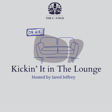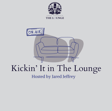Become a Creator today!Start creating today - Share your story with the world!
Start for free
00:00:00
00:00:01

The Importance of MAPS with Hana Karman and Jonathan Truxillo
Join us as we dive deep into the Minority Association of Pre-Medical Students (MAPS) and discuss its importance at the regional and national level with Hana Karman and Jonathan M. Truxillo.
For more information about MAPS visit https://snma.org/page/maps.
Facebook: SNMA MAPS
Twitter: @SNMA_MAPS
Instagram: @national_snma_maps
To share your thoughts on our discussions or if you have any questions to ask our host, email podcast@snma.org for a chance to be featured on the show!
Disclaimer: The opinion and views expressed on our podcast do not reflect the official stance of the Student National Medical Association.
Transcript
00:00:23
Speaker
Welcome.
Introduction and Guest Intros
00:00:24
Speaker
It's a special episode on SNMA Presents the Lounge. You know the vibes. You know who I is. Dr. Aldon Samari, AKA White Coat Poppy, AKA Enriching Doc BX. I don't have to say much more. But this is a real, real, real, real special guest because today we're here to talk about the importance of the Minority Association of Pre-Medical Students.
00:00:47
Speaker
with Jonathan M. Chuxillo, the National Pre-Medical Board Member Chair and National MAPS Committee, and Hannah Cameron, President of the Davidson MAPS Chapter. So before we get on to the questions, I'm gonna let you guys introduce yourselves. Jonathan, you can start first and then we'll go with Hannah.
00:01:08
Speaker
All right, perfect. Thank you, Dr. Somari, for having us. But my name is Jonathan Truxillo. I'm a fourth year at the University of Texas at Austin studying humanities. And I currently have the privilege of serving the Student National Medical Association as the National Pre-Medical Board Member and Chair of the National Maps Committee. It's an honor to be here. But I'm going to let go ahead and let Hannah take it off from here.
00:01:32
Speaker
Hi, my name is Hek Omeran. I'm the president of the Davidson College Maths chapter. I've been involved with this chapter over all four years of my undergraduate education, and it's a pleasure to be here today. Thank you for having me. Yeah, we're thankful to have you here, as was mentioned.
Significance of MAPS within SNMA
00:01:49
Speaker
And you know, the bright lights
00:01:51
Speaker
The shine, the action, the glitz and glamour, AMEC 2023 is about to be here. And of course we thought it would be so befitting to highlight maps, even for myself. You know, I'm not trying to date myself, but I was vice president of my maps chapter at Rutgers Newark and Newark, New Jersey back in, that was like 2011. So, you know, I'm a real old head, but I've always had a specific, you know, respect, rapport, appreciation and admiration for what maps stood for.
00:02:21
Speaker
Maps is a crucial part as we know of SNMA, but I wanted to ask Jonathan, would you mind telling our listeners more specifically about what is maps and its mission and purpose and the role it plays in the larger organization of SNMA?
00:02:36
Speaker
Yeah, of course, thanks for asking that question. In terms of MAPS and our commitment to our pre-medical students across the country, MAPS plays a very instrumental role within the organizations, one specifically to ensure that we have recruitment of pre-underrepresented minority pre-medical students throughout the country, really matriculating into medical schools and eventually becoming physicians. Again, whenever you mention these statistics all the time,
00:03:05
Speaker
The current demographics of the physician workforce are nowhere near the current representation of the actual population that they do serve. So in terms of what our purpose is in general, we really are focused on enriching the academic and professional development of minority pre-medical students underrepresented in medicine.
00:03:28
Speaker
and increasing their knowledge and their skills and experiences to ensure that they are competitive to applicants whenever they are ready to apply to medical school. Additionally, at the same time, from a sustainability standpoint, our pre-medical students and MAPS members of the organization are going to be our future leaders of the Student National Medical Association. I mean, our medical students right now are therefore between one to four years
00:03:53
Speaker
But then after that, then who's going to take on these additional leadership roles. So we play a big role within making sure that our organization is going to last for years to come, as well as ensuring that we have a diverse physician workforce.
00:04:08
Speaker
Maths specifically was founded in 1989 by Dr. Jeffrey Sterling, but we've had even our commitments within the organization for pre-medical students well before that. Even my role as national pre-medical board member, I think the earliest that I can see that it was documented was 1979. We've been doing this work for decades, and I think
00:04:28
Speaker
Our chapters have been able to really showcase how much we've grown throughout our existence, even within the
Jonathan's Role and MAPS Initiatives
00:04:36
Speaker
organization. We have over 250 chapters now, even though that we started officially in 1991. That just speaks to the impact that we have as an organization at large.
00:04:47
Speaker
Right. And I love that you mentioned the history. I mean, I know there are several former pre-med board members that are actually my mentors. So it's crazy to think like the history behind, you know, the PMPM position and also the role that MAPS has played. For you, speaking to that, you know, when I came into SNMA and MAPS and I didn't even realize that there was a whole overarching structure, you know,
00:05:10
Speaker
You have your PMBM, you have all these different roles that people have to play, and it can be quite complex and convoluted, but it's great in terms of what their organization represents. But could you detail more about what your role is with MAPS and also being on the board of directors for SMA as well? Yeah, of course. Like you mentioned, MAPS is definitely in every position, almost every meeting that we have. Specifically on the board of directors, we really do serve as the voice of our pre-medical students throughout the organization.
00:05:41
Speaker
Our board of directors is really consists of, you know, our national president, vice president, professional board members or regional directors, as well as our national committees. Specifically, MAPS also serves as a national committee within the organization. But our primary focus is really on developing those skills and experiences that our pre-medical students are going to need, you know, whenever they are applying to medical school.
00:06:03
Speaker
In terms of the different activities that we do, we have various webinars that we put on for our pre-medical students. We try to make sure that our students have those experiences, especially when they come to their regional medical education conferences. Like you mentioned before, we're about to have our annual medical education conference, and we're planning for that.
00:06:22
Speaker
Really making sure that they have breathtaking experiences having mentorship. We're doing the logistics of mentorships and making sure that they have those connections. We do a lot, especially we also have different programs throughout the entire organization, such as our PMI pipeline mentoring institute leads the clinical shadowing mentorship program.
00:06:42
Speaker
having so many different sessions focused on professional development, learning about different specialties, specifically for our pre-medical students, especially with being on the board, you have an opportunity to make sure that the decisions that you make as an organization, how do they impact our pre-medical students in our map chapters, that might be a little bit different than how they do impact our medical students in SMH chapters. So always being that voice and that ear within those conversations is pretty much why we are always going to need that PMB in position.
00:07:11
Speaker
Oh, yeah, for there's no doubt, you know, those Sunday meetings, you guys, I mean, I've been through it, you know, with my position, I see a path to committee chair and being able to work with, you know, the PMBM in the past has been a astounding thing, knowing that the pipeline, as you mentioned, is so critical for SMA and its leadership, but also like seeing how engaged and, you know, how confident a lot of the individuals that are part of the maps committee as well and along with PMBM,
00:07:38
Speaker
on the
00:07:51
Speaker
Leadership it's also important to cultivate things from the ground up No starting from the individual then starting from the local chapter and then we go on to regional and then national I want to ask you Can you share some of your early experiences with maps and then second? What made you eventually decide to join your chapters leadership team?
Hannah's Early MAPS Experience
00:08:15
Speaker
You're muted That's all good don't worry
00:08:20
Speaker
Sorry. One of the things I really appreciated about MAPS was Davidson is a very small liberal arts college in the South. It is fairly homogenous. And I think that having that small community of people who
00:08:40
Speaker
are from minoritized backgrounds, but also people who recognize broader issues of diversity, equity, and inclusion is really key in order to just survive and thrive in an environment where you might be different from your peers and you might encounter different barriers. And so I found that the mentors I had through Maps at Davidson, other individuals who were not
00:09:09
Speaker
the kind of typical member of the Davidson student body was incredibly helpful and it helped me find my footing in medicine. I think one of the barriers for students is often
00:09:21
Speaker
not seeing yourself amongst people who go on to succeed in medicine. And so having a mentor go through that process and help me overcome barriers individually, kind of in line with the mentorship aspect that's present in SNMA at all levels, including local level, that was incredibly helpful for me. And that's what motivated me.
00:09:43
Speaker
to join the leadership team to kind of further those goals and take a data-driven approach to assessing the issues that impact our students specifically. And I think that allowed me to hopefully see the barriers that I faced that maps, you know, I felt like could have provided more support for and provide that support.
00:10:04
Speaker
Yeah, great, great responses. And I love that you talk about your prior experiences and importance of continuing to cultivate the future and be involved with maps. But as you mentioned, being the maps chapter, you know, being a representative of the maps chapter at the Davidson College, you know, Steph Curry with the shot, you know, out of Steph Curry the game, honestly, you're killing it. How has the chapter, the maps chapter at Davidson College, lived up to the mission and purpose of the National Maps Organization?
00:10:35
Speaker
I think that question has shifted as, you know, the pandemic has happened. It's shifted as even the local environment at Davidson has changed. You know, before I was a freshman at Davidson, there was maps and then separate in a different kind of category was Alpha Epsilon Delta, which, you know, there is a move to try to move away from kind of
00:11:02
Speaker
honors programs that have strict fee requirements at Davidson as part of a move towards greater equity so that people can participate regardless of their ability to pay a fee. And I think that MAPS has been in that role of doing equity work for the longest time. There's been long-term engagement
00:11:22
Speaker
I work with our current pre-medical director, Dr. Naela Mamoun, and she has done phenomenal work in setting up long-term mentorship. When I took over the mentorship aspect of the program, which is typically run by our vice president, I was vice president last year, and we really
00:11:39
Speaker
you know, even though we were coming back from COVID, expanded the mentorship program on a campus of 2000 people to include 100 students, which is a pretty significant portion of pre-medical students at Davidson. And I think that it also really demonstrated just how important the issue of mentorship was, and particularly for students from marginalized backgrounds and how people were really willing. They were, you know,
00:12:05
Speaker
they wanted to provide that mentorship to others and help them overcome those barriers. And we've expanded this year to now have physician mentors for students who come from marginalized backgrounds and house that program within the Career Center. On top of that, I actually worked to set up more of
00:12:23
Speaker
I restructured the way our local chapter functions and that now we have committees that kind of are very similar to the national structure and that now students, they don't have to be in an exec board role the way that they were in the past in order to meaningfully engage. You don't have to be the president of the organization to have a say in what we do. Then that's kind of the whole, to me, the purpose of SNMA as a broader organization, it's taking those grassroots issues and approaching them at every level institutionally, you know,
00:12:53
Speaker
collaborating across all of the different years in which one pursues their medical education. So we have support from our weak forest partners are at a weak forest SME chapter. And I think that, you know, the maps chapter at Davidson by kind of focusing on that mentorship aspect and focusing on how it can best provide resources targeted to the needs of minority students has really kind of been in line with the mission and purpose overall.
00:13:21
Speaker
What are some of the programmatic events that you host to execute a lot of those goals? And you did mention some collaborating with Wake Forest and as well as having, which I think is wonderful, especially at an early time period to have physicians and medical students that mentor.
MAPS Events and Challenges
00:13:39
Speaker
Directly the students within the maps chapter because it's hard to envision and see yourself being in that role unless you see it directly You feel it tangibly you're able to interact with it All right when you're taking or go and all of these classes in a pre-med You're kind of looped to that until you are in essence in that seat in that position to really challenge the way you think that challenge the way you see things so speak more to some of the events that you continue to host as you execute these goals and
00:14:06
Speaker
Yeah, so we have hosted a lot of different kind of diverse speakers in the past. One of the things that we really focus on is inviting speakers who are not only physicians that are from minoritized backgrounds, but we host people who are kind of like national leaders.
00:14:24
Speaker
in the field of medicine and health. So we had the director of the North Carolina DHHS in previous years come and talk. And we've also arranged events that are focused on collaboration with the local community as well, getting those opportunities to volunteer and engage at a community level and start that early on so that
00:14:48
Speaker
you know one of the things that the medical school application process really looks for is that community engagement aspect and because of a variety of barriers that's not equally accessible to everyone particularly if you're in an environment where like if you don't have transportation to go volunteer at the hospital to go volunteer at like the nearest local clinic and yet there are communities in need near the Davidson area that has been neglected uh... you know it historically and so having
00:15:18
Speaker
event programming that works at the local level to provide public health education campaigns. That was something that was happening.
00:15:26
Speaker
you know, even when I like just joined MAPS as like a freshman and it's something that we're continuing right now and working on setting up regular service Saturdays where we have students that volunteer at a variety of different local clinics in the area and trying to do it in a way that is equitable so that students can access it even if they don't have cars, even if they don't have, you know, transportation that is available on campus. We used to have an Ada Jenkins free clinic
00:15:54
Speaker
And that shut down, unfortunately, during the pandemic. But that was where the majority of students who didn't have cars and were also really interested in working with the local community went. And so we're trying to fill that gap that was left behind as the pandemic has shifted things around and closed down a lot of those traditional programmatic opportunities. And so we're trying to kind of repopulate that environment and do so in a manner that addresses different student needs.
00:16:22
Speaker
Jonathan, I'm sure that it could be such a challenge to coordinate strategic goals for a national organization while also supporting chapters on the individual level. From your perspective and experiences, what are some of the most common challenges that maps chapters face today? Yeah, that's a very interesting question because I've been on both sides in terms of being on the board of my local map chapters as well as everyone on the board of directors for the organization at large now.
00:16:50
Speaker
In terms of some of the challenges, I know one thing just as Hannah kind of alluded to is it's not about the work and doing managing the programmatic structure. They got that down. They got that down.
00:17:01
Speaker
But I think what I've noticed are some of the challenges and would have documented have been one has been funding to really make sure that they are their organizations have the financial means to do whatever they want to do for that administration or even attend different regional and national events. And then two is I think as students
00:17:22
Speaker
I think this might be like their first role where they're starting to maintain administrative components of their chapter within the larger grand scheme of a national organization. But I think those are pretty much the two challenges that I think in general that chapters face. I think whenever they transition every year throughout leadership, some of that administrative task aren't always communicated to the next chapter president.
00:17:47
Speaker
And then they still, again, they continue to do the work, but I'm not sure if they always reflect or are known within the larger organization. But overall, I think those are the two biggest challenges. Hannah, in many ways, the map chapters are both a reflection of the national organization and the academic institution where they're located. So how some of the challenges that Jonathan just previously mentioned apply to your particular chapter at Davidson College?
00:18:16
Speaker
Yeah, so when Jonathan mentioned, you know, transitioning between different leadership teams and how, you know, there's work being done, but is that known to the larger national chapter? I felt that that was very true throughout my time at Davidson, and particularly when I transitioned to becoming MAPS president for our chapter. All of, like, for example, our SMA email address, that information was not communicated to us.
00:18:42
Speaker
and like reaching out to the prior chapter president, like all of that, that was, you know, it resulted in kind of like no additional information. So we had to start from the ground up and, you know, go back through filing documents late. And I think that we adapted and we're doing work in our community at the local level and addressing the needs of our students. But we have to work harder and kind of reinvent the wheel in making that known to the national organization and also finding ways to engage
00:19:11
Speaker
with broader opportunities that SNMA offers, even as a smaller chapter, even as we're kind of operating based off of the minimal information we received from the prior administration.
00:19:26
Speaker
Those are certainly some of the challenges that we're navigating right now. But nevertheless, I am working on my end to also make sure the challenges I have faced in my kind of process of transitioning roles, that does not happen to the next administration.
00:19:43
Speaker
making sure that that information is sustained, making sure that also our contact with our sister SMA chapter at Wake Forest, who also facilitate a mentoring program, you know, through mentoring the pipeline with Davidson, making sure that that information also is communicated throughout the transition
00:20:02
Speaker
I think all of those things will result in hopefully whoever the next administration is having a smoother transition and being able to more effectively not only operate locally but have support that's needed from the national or regional level if they need it because that's certainly one of the issues that we've also encountered is when you
00:20:25
Speaker
encounter barriers at the local level, but also are kind of struggling to connect to the broader regional and national level of SMA. Sometimes you can feel you're going it alone, but you're not. It's just a matter of trying to find out ways in which that support is available and access it, even if you don't have that information and that connection maintained through that transition period between administrations. What is unique about the landscape at Davidson College to you?
00:20:56
Speaker
Yeah, so I mentioned that our student demographics are, you know, somewhat homogenous. We don't have a lot of students from a minoritized backgrounds, but nevertheless, we've had a lot of engagement in the past with maps and people have been really passionate about the issues that maps engages with. And I think that as, you know, we've had
00:21:19
Speaker
kind of the pre-medical society grow and develop on campus and change from alpha epsilon delta. We've worked synergistically in kind of the work that we're doing.
00:21:29
Speaker
But as COVID happened, as there was less long-term involvement between different groups, we had a lot of engagement from people who had been around to see maps pre-pandemic at Davidson. And those people were really engaged with the mentorship program last year. When I went to Second Look Weekend, I got
00:21:54
Speaker
I had people telling me like, oh, you're the person who was always in our inboxes, like sending emails from maps. Like they were still on the email list. Um, so they, they were engaged. And I think that with.
00:22:05
Speaker
the new incoming class year, I've found difficulties in that people think MAPS is, you know, just for minorities. And I think to a lot of people that connotates a different meaning than, you know, being involved with like, for example, the pre-medical society. And I think that people don't know the important work that we're doing and they don't seek it out themselves. Partly because of the, you know, environment at Davidson being a place that is
00:22:34
Speaker
PWI, a place that is very homogenous. Um, and certainly, you know, there has been a few Google Davidson, um, there have been issues that we have faced in the past with DEI work. And that's something every institution faces. Davidson in my experience has been very open to enacting new initiatives in the DEI space. I've been working in that field ever since I got here and, you know, trying to provide more
00:23:00
Speaker
support resources for students from minoritized backgrounds at the systemic level in terms of identifying barriers and enacting more equitable policies.
00:23:09
Speaker
I think that some of those issues still persist, but that's going to be true for every institution. However, if that engagement isn't there from the next generation, if people don't see the value in maps because they see it as just the minority association of pre-medical students, instead of seeing it as, this is the minority association of pre-medical students, but it's addressing these broader national issues and it's part of a national program. It is not just for people who are minorities to engage with. It's something that everyone should be engaging with on campus as they have done in the past.
00:23:39
Speaker
gives us more power to the work that MAPS is doing on the local level, on the national level. Everyone needs to be engaged with issues of DEI. Everyone needs to be engaged with issues of supporting minorities in medicine and creating a more equitable environment that's going to be better for the future of medicine for everyone. And I think that that kind of engagement is lacking in that regard.
00:24:04
Speaker
We've also run into issues more specifically about, you know, if people don't see the value, they're not going to provide us funding, which means they're going to have to limit our
DEI in Medicine and MAPS Support
00:24:12
Speaker
programming. If people don't see the value, they're not going to want to charter us separately from, you know, other groups on campus that are doing important work, but it's distinct work. It's not S&M's work. And so like with the pre-medical society, people don't know what we do that's separate sometimes, and they don't want to engage. And it's hard to reach out to people who've already put up those mental barriers.
00:24:32
Speaker
and who have already blocked off any information they receive in their inbox. And that meant that when we were applying for funding, we got questions about, well, you know, even though we used up all of our budget, even though we demonstrated how we're engaging in these different issues, we got questions about why does your group exist separately on campus? How are we all just trained for a free medical society in a way that's meaningful?
00:24:53
Speaker
And those are issues that I'm dealing with right now and we've worked, we fought tooth and nail. I've networked with alumni. I've talked to the pre-medical office. I've looped in every person I can think of and have been doing as much work as I can on my end. But I still find that
00:25:13
Speaker
when it comes to power dynamics and institutional power dynamics, of course students are at a disadvantage. And if people don't see the value, if we're not having that engagement the way we did with prior classes, it's going to be even more of an uphill battle. So that's kind of the issue that we're dealing with right now.
00:25:35
Speaker
I mean, I definitely love the work you're doing and the fact that you're standing firm in your conviction to advocate for a DEI. It is a huge issue from pre-med and beyond. We even see it in medical school and in residency. And having that seat at the table and pushing forth is one of the most critical things that I think we need to do to achieve the equity
00:25:58
Speaker
that is necessary for our communities. We know the statistics, you know, across the range with underrepresented minorities and how that leads to negative outcomes for patients in the future. And sometimes, you know, you got to put your foot on them, you know, you got to put, you know, your foot on their throat until, you know, they relinquish themselves and understand why it's needed, why only 5% of physicians are African American yet.
00:26:25
Speaker
you know, the population, we make up 14%, right? Why, you know, for instance, the carceral system, you know, black men make up 40%. So there's all these various statistics on why we need maps, why we need these various organizations to continue to create these initiatives for DEI. Jonathan, are you aware of any similar challenges that you find at other maps chapters that Hannah has mentioned at Davidson?
00:26:53
Speaker
um none that i've been oh that's been brought to my attention throughout this administration in terms of like DEI efforts and funding um i think it may have been a bottleneck issue with um the regions and making people making us all aware of these issues um typically i think we do hear um from time to time there are uh some issues with
00:27:19
Speaker
local chapters specifically. They may have challenges with funding in general, but the way that it's being presented within Davidson College is something that we have not been aware of. But in terms of the DEI initiatives and the institutions, how they're trying to combat that, that's something that even my institution is starting to struggle with. I'm in Texas right now. So with that, I don't know if y'all saw a lot of amazing folks, a lot of amazing governor.
00:27:47
Speaker
has caused all DEI initiatives at public institutions. So these issues are still continuing to be brought up day after day and month after month. Really trying to see as an organization, how are we going to start to really start to challenge these issues that our chapters are facing at the end of the day. I think there's going to be a really bigger turnout, especially with this upcoming Supreme Court case that's coming up.
00:28:15
Speaker
not really sure where, what direction this is going to go in. Hopefully it still remains in our favor, but I just have to really pray and hope for better in the future.
00:28:27
Speaker
When you think about the impact of MAPS and SMA in general, underrepresented, minoritized students, what would it mean to not have funded and supported MAPS chapters? Hannah, you mentioned this a little bit, but this question goes to both of you. What are your perspectives on this? Hannah, you can go first. Yeah, so I think, you know, funding and supporting go hand in hand because I think that
00:28:55
Speaker
There's support that you can find from alumni engagement. There's support that you can find from on the ground engagement. There's support that you can find from the administrative level. And I've found all of that. I have been proactive about reaching out to alumni, reaching out to faculty. And we've had a lot of support from the people that we've worked with.
00:29:15
Speaker
unfortunately coming from one particular bureaucratic process of chartering and receiving funding. And that dictates whether or not we can exist as a separate entity on campus, as well as receive funding as a separate entity, as we have in the past from pre-medicine society. But we've had a lot of engagement. And as I said, Davidson, despite being a PWI, I've found has been
00:29:43
Speaker
very, very enthusiastic about engaging genuinely with issues of diversity, equity, and inclusion. And there have been so many people who are allies working in this space. It is something where people who are from minoritized backgrounds are leading the charge, but they are supported by allies throughout the way.
00:30:04
Speaker
And so I have found that Davidson has done a lot of really great work, but that doesn't mean that, you know, individual people who raise barriers, it doesn't mean that those barriers aren't substantial, particularly when they impact funding because without funds, I can't put together resources, I can't put together programming. When I mentioned students having difficulty going to volunteer at clinics because they don't have transportation, and I want to make sure that they can engage with, you know, that community engagement aspect, even though they don't have transportation.
00:30:31
Speaker
I can't pay for an Uber or reimburse transportation costs or put together those kind of things if I don't have funding. I can't provide food for an event if it's going to overlap with lunch hour if I don't have funding. Even alumni networking events, that kind of thing requires funding. And when we have food, the turnout is, of course, a lot greater on campus. So people will encage more.
00:31:01
Speaker
We have more publicity. It's kind of a positive feedback loop when you have more funding, you're able to do more things and that gets more people engaged and people see the value. But when one of those things
00:31:12
Speaker
disappears from that feedback loop, it becomes very difficult no matter the amount of faculty or other institutional support that you might have. If the people who are giving you money and at the end of the day determining whether or not you can exist individually on campus, even if it's just one person or one body as it is in our case, it can present a really substantial barrier.
00:31:36
Speaker
And the amount of time that we've spent dealing with this issue is time that we're not putting together other meaningful programming for our students.
MAPS Programs and Mentorship
00:31:43
Speaker
It is a time drain, it is a resource drain, and it's something that keeps us from doing more important work.
00:31:53
Speaker
I echo everything we were going to just say. Again, in terms of funding and institutions being able to really financially support their organizations and chapters on campus, it severely limits the potential impact that a chapter can have, whether that be like, again, their programmatic initiatives that they have developed for the year or even engaging meaningfully in the community, because I'm nine times out of 10.
00:32:18
Speaker
How much is the institution engaged in the community that they are housed in? Our local chapters are really the meat and the bones of the community work that a lot of the surrounding communities need and require. Additionally, when we talk about funding, I think about our events as well.
00:32:41
Speaker
are MEC and AMEC. These are events that we specifically tailor for our pre-medical students to get the most out of. We have all of these exhibitors. I would say when I talk to different medical students, how did they get into medical school? They got their information from AMEC.
00:32:58
Speaker
We have centers of exhibitors from around the country where people can start to network with admissions deans, get their emails, connect afterwards, being able to get that type of advice that you require for the application process, getting your personal statement reviewed and having a mock interview, making sure that you are aware of all of the things that
00:33:18
Speaker
People don't tell you within even like the pre-office. We talk about getting curriculum. What else do I not know about this application cycle? Should I know? What is a core competency? Should I try to include that in my application? All of these little hints and things that you get from the things that we put on within the organization. And then it begins to even still address the gaps that the institutions themselves don't have, but the students do notice. So again, it's supporting your students.
00:33:49
Speaker
Speaking to that, how can maps chapters solidified their standing and find faculty mentors within their institutions, Hannah. Yeah, so one of the things we found was.
00:34:02
Speaker
Our pre-medical director has done so much work fighting for us and fighting for those connections. When I told her, for example, that we were having difficulty receiving info from the past administration on our SMA email, our documents that we need to file for our chapter status, even getting back in contact with our sister SMA school liaison who facilitates that mentoring the pipeline program.
00:34:27
Speaker
She was the one that really took the initiative and people respond when they see, you know, faculty. They don't necessarily respond when they see, you know, like another undergraduate student just kind of reaching out. So I think that we've had so much support because our faculty mentors see the importance of MAPS. They know the importance of SNMA.
00:34:50
Speaker
Um, and particularly like our pre-medical director collaborates. We have this pre-health symposium that she helps coordinate every year, every year. It's amazing. Um, and she brings in, you know, really amazing doctors that she has had, she's worked with, um, deans of admission at different medical schools. We had Dr. Ramdali from Chapel Hill and Dr. Cedric Bright from, um, Brody School of Medicine come and talk to our students. And I think that seeing.
00:35:19
Speaker
Physicians who are from minoritized backgrounds and in positions of power, in positions of change, and seeing the work that they do at their institutions and having students talk to those people and see themselves potentially at these institutions in the future. That's made a huge difference. And we've worked with a career center and have found support there for the physician mentoring program. And they see the importance of maps. They know about
00:35:46
Speaker
systemic barriers that might prevent math students or minoritized students from getting the support that they need that might be there for other students. And so trying to put together programming more broadly that addresses those needs for everyone and then targeting
00:36:02
Speaker
that programming for students who have a greater need. By having those collaborations, we have found so much support from everyone that we could at the institution that has engaged with MAPS meaningfully. The people that work with us know the work that we do. They see our importance. And that has been pretty much everyone. But if
00:36:24
Speaker
you don't engage with maps. If you are working purely in finance, if you're working purely in a role where you might not work with the minority association of free medical students on a day to day basis, it's hard to see the importance of the work that we're doing or know the work that we're doing. And so I think that
00:36:43
Speaker
It is a matter of having institutional priorities in place for DEI. It's institutional priorities in place for helping minoritized students. And those are certainly present at Davidson. And we have faculty members and staff members who really, really care about these issues on a deep level. And I think that comes through in the support that they provide.
00:37:09
Speaker
So, you know, it's an institutional culture issue and I think that if the institutional culture is one that cares, it comes through and that support is there.
00:37:20
Speaker
Yeah, for me, like mentors are so necessary in medicine. And you mentioned, you know, your name dropped Dr. Bright. I remember before I even got into medical school, I had the opportunity to meet with him and I would see mad conferences. And those are, he's one of those individuals that you see and he's always like pushing you forth and giving you good words of encouragement. And even when I applied to at the time of things that you wouldn't see Chapel Hill or something like that.
00:37:44
Speaker
Now, he was trying to help me get an interview. I didn't get an interview, but the fact of the matter is, like, you know that he was working behind the scenes to do everything he can to put me in a position to be successful. So with that being said, having mentors in your institution, but also finding mentors outside of your institution is so important. And seeing yourself in those individuals and having them come back can ultimately change the course and trajectory of where you find yourself in medicine.
00:38:12
Speaker
I love that Davidson has been able to capitalize on that. But now, going to on the larger role and the larger perspective within SNMA, Jonathan, how can the larger SNMA organization and network support local maps chapters?
00:38:29
Speaker
Yeah, of course. So in terms of really our network within the organization, again, we've reached wide and deep within the organization specifically, really making sure that our SMA and chapters and our maps chapters really are building and maintaining their connections throughout the year, whether that be through different local mentorship or programs or really collaborating on different community service events. Again, we're all focused on the same mission, so we're
00:38:56
Speaker
defining where there is alignment is really going to be important in making sure that we continue to have those relationships within our local chapters. Specifically within on the National Maps Committee was really focusing on different programs that may not be offered or a possibility at
00:39:13
Speaker
at their local chapter. So I know some students, maybe my chapter may have, they struggle with maybe trying to find different physicians to really shadow. And that's something that's required for medical school applications. So, you know, having this clinical shadowing and mentorship program where students can virtually shadow physicians and really start learning more about medicine. Additionally, for our chapters in general,
00:39:37
Speaker
We just got the AstraZeneca grant, which focuses on supporting local chapters, implementing community service initiatives throughout the year. So those are some of the ways that I think that we are trying to support
Future of MAPS and SNMA
00:39:50
Speaker
our chapters. And additionally, we focus on different partnerships, hopefully in the future, really building that additional connection with even our NMA chapters, our National Medical Association chapters, which are
00:40:01
Speaker
Essentially, our physicians, you know, I think we have our physicians, medical students, and pre-meds. I'm glad that we always have our tears, but really focus on building those relationships as well. What do you hope the future holds for your MAPS chapter, Hannah? I hope that the future holds continued engagement and meaningful engagement from the incoming generation of pre-medical students at Davidson.
00:40:27
Speaker
And I hope that that's a future that involves engagement at every level across the institution. I hope that, you know, we see engagement supporting students, finding those different opportunities, as Jonathan mentioned, like shadowing, finding opportunities like volunteering, facilitating those mentorship connections. But then also, you know, creating a safe space and working in those kind of less quantitative ways, things that
00:40:55
Speaker
You can't necessarily put down on a piece of paper, but you can sense when you're in the environment that provide a lot of support to students that they wouldn't otherwise find.
00:41:07
Speaker
you know, if they are coming from a minoritized or marginalized background in medicine and facilitating also, you know, a broader understanding of the importance of supporting the work that SNMA is doing basically across everyone, whether or not they're from a minoritized or marginalized background. And I hope that that continues regardless of what happens in the funding situation, because I do think that the work is so important and
00:41:35
Speaker
Really, it's so crucial. It can't stop being done no matter what happens. And I think that the support that we receive from our institutional partners, you know, will allow us to continue and to continue to do that meaningful work. And that's what I hope happens at our local level. And I hope that the larger MAPS organization continues to really do this important work, recognize these barriers and work to address them at the policy level.
00:42:01
Speaker
and to facilitate those collaborations across all those different tiers that Jonathan mentioned. And for you, Jonathan, what about on the larger grander scale, the SNMA and MAPS as an organization? What do you hope for the future? I hope that
00:42:19
Speaker
in the future within maps that we really strengthen this pipeline across all states across the country. I think we have strong chapters throughout the country right now, but really making sure that it's leveled in a sense that all of our chapters are strong and also still trying to build new chapters, whether that be through at the community colleges or even at
00:42:42
Speaker
different graduate schools. That's another thing that we're also trying to focus on. I think in the future we also can really focus on building new and different partnerships that we haven't thought of before. I think it's going to be really crucial as we enter our 60th anniversary within the organization with a new strategic plan. Right now it's up in the air and I think that we're going to start to begin grabbing something that might be a lot more tangible that we see in the future.
00:43:13
Speaker
So It's great. You guys have done a terrific work in your respective roles as PMBM pre-med board member and as well as Johanna as president at the Davidson chapter of maps But the question of the room right now is we talked about earlier a Mac is about to pull up in the next couple of weeks Are any of you guys gonna be there and if so, what are you looking forward to most at the conference?
00:43:46
Speaker
Well, I have to be there. According to our PPM, I have to be there. But yes, I will be there. One of the things that I'm most excited for is what I'm always excited for, the graduation ceremony. Seeing all those fourth years and seeing the magic and the excellence walk across that stage with their stoles. As you know, they just got matched about to become our future physicians. It's a different feeling when you see it in person.
00:44:16
Speaker
with like how many black and brown positions are about to enter the workforce. That's always crazy and it always gives me so much inspiration just as a pre-medical student in general. I think the first time I saw it was when it was virtual and I was like, this is, I said, I didn't even know this many people existed. And then when I first said, I would, it took me to a whole different level. It was, I don't know, it's just a different feeling. Love to be there, will not be able to be there, you know,
00:44:45
Speaker
time conflicts, scheduling conflicts, but I'm hoping that we can get more Davidson people there in the future. Yeah, certainly. You know, I've been going to AMEX since 2015, since I was in New Orleans when I was a pre-med student. And just because of that conference, I made countless connections. And as was mentioned earlier, even, you know, meeting with deans of admissions and things that I like for medical school, but even on top of that, while I was in medical school,
00:45:14
Speaker
I've gotten residency interviews in the past because of going and attending AMEC. So it is definitely one of the greatest shows on earth. I said, I am missing not one AMEC in the future. I'm going every year. Even when I'm 65, I got to come back and pull up because the energy is just so different. You know, last year we had 3,100 people attend in Orlando. This year so far is about 2,200 people from my sources.
00:45:42
Speaker
And it's still climbing. People are still coming through and signing up and whatnot. So it's going to be another great year to get inspiration. But for those that unfortunately can't attend, there's always going to be another AMEC. So next year, I'm not going to say where it's at because I'm not supposed to. But next year, there will be another one and it'll be in a nice city. So I look forward to that.
00:46:05
Speaker
But I'm really thankful for you guys and sharing your experiences and definitely representing MAPS to the highest of standards. I have no doubt and I'm highly encouraged that you guys will be excellent leaders in medicine, excellent medical students, residents and physicians that will continue to propel the field
00:46:26
Speaker
especially for minoritized individuals, but also for the communities that you continue to service. This in itself, being part of MAPS is a fantastic thing. And it's something that you're not asked to do, but you're called to do. And I believe that you guys are both called to greatness and you will continue to live through that. And so thank you for coming on to SNMA Presents the Lounge podcast.
Wrap-up and Contact Info
00:46:54
Speaker
And this is the end of our interview unfortunately cuz I love listening to y'all like I'm getting Whoo, you know me? But anyway, if you want to have more information about maps you could visit SNMA org or you can email us at podcast at SNMA org Thanks for tuning in family. We love y'all one love peace
00:47:23
Speaker
Bye!









